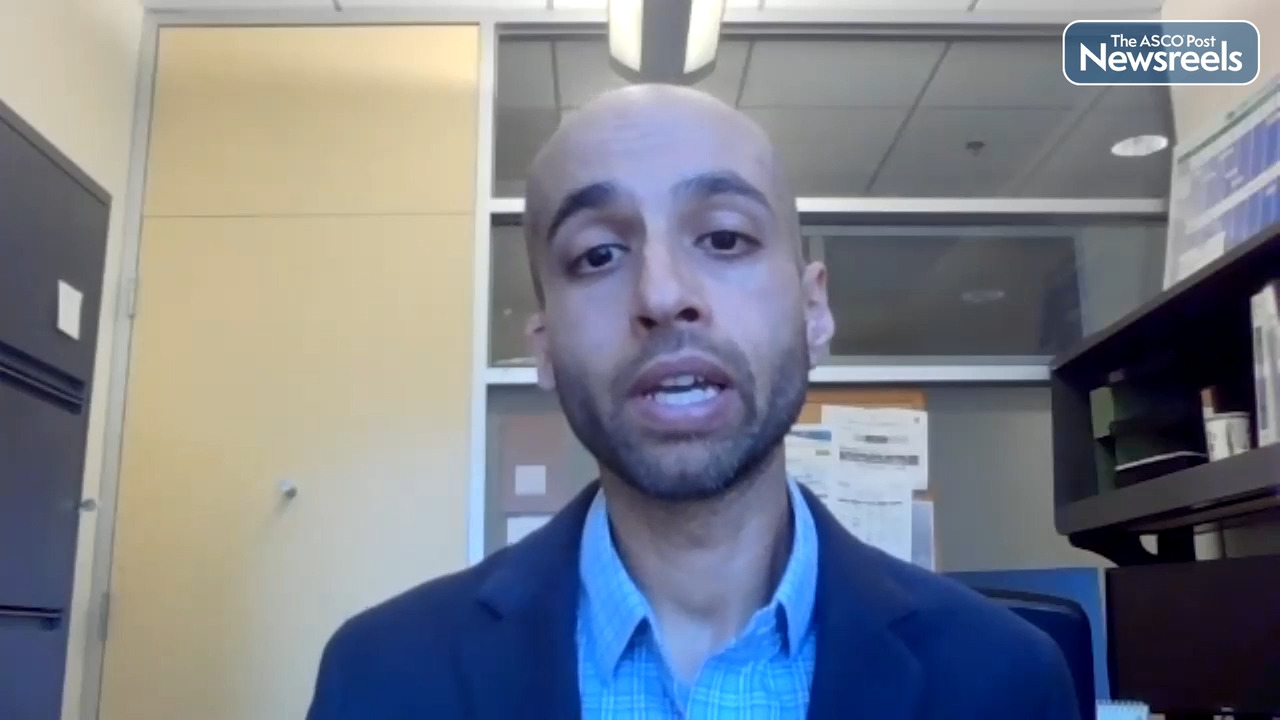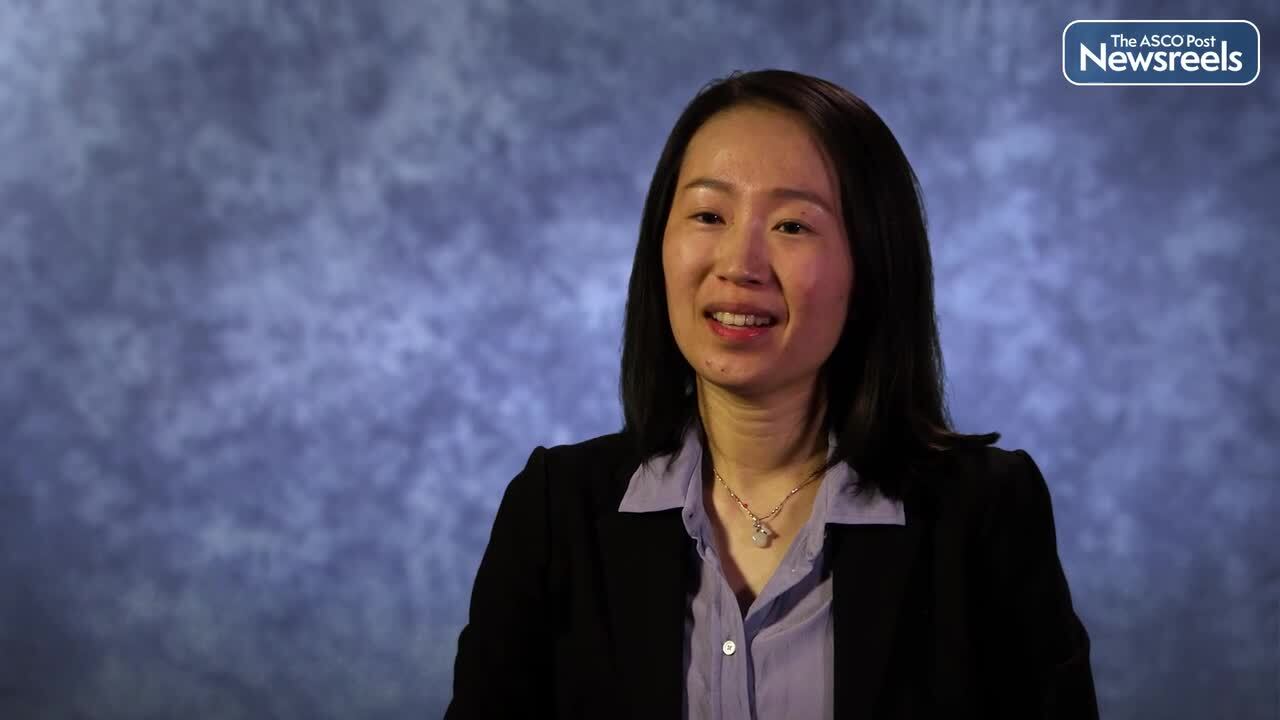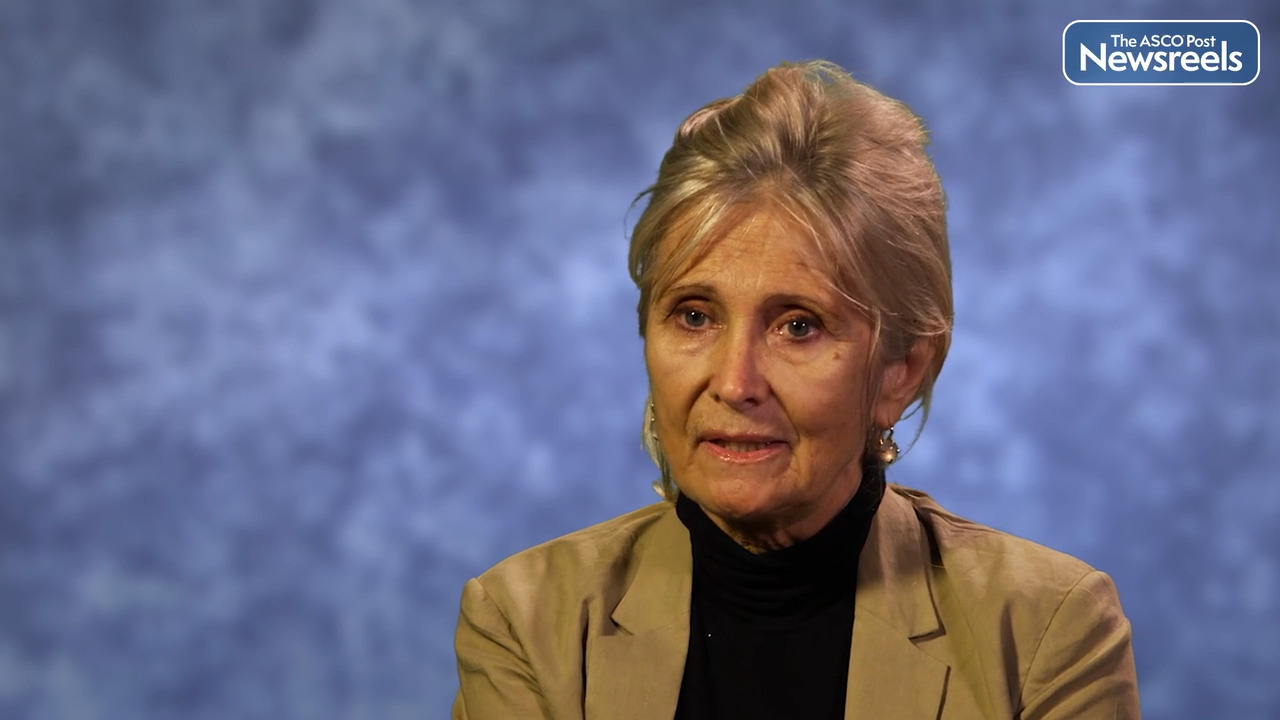Alana L. Welm, PhD, on Metastatic Outgrowth in the Lungs: Identifying a New Immune-Mediated Pathway
AACR Annual Meeting 2022
Alana L. Welm, PhD, of the University of Utah Huntsman Cancer Institute, discusses her findings of a new pathway that regulates the antitumor immune response during metastatic outgrowth. Interfering with a particular isoform of RON kinase may cause metastatic tumors to be swarmed by T cells and killed, suggesting that new approaches to targeting this kinase may be achievable in the near future (Abstract SY32).
The ASCO Post Staff
Gautam Mehta, MD, of the U.S. Food and Drug Administration, discusses how accelerated approval of potentially life-saving cancer therapies has been applied in precision oncology. Although “fast-tracking” drugs presents opportunities and challenges, one possible measure of the program’s success is the fact that, to date, no solid tumor accelerated-approval indications have been withdrawn (Abstract DC06).
The ASCO Post Staff
Priscilla K. Brastianos, MD, of Harvard Medical School and Massachusetts General Hospital, talks about her efforts to better understand how brain metastases evolve genomically and to test such agents as abemaciclib, paxalisib, and entrectinib, which may stop their growth. Palbociclib, a CDK inhibitor, has already shown potential benefit. A national cooperative group trial is underway in multiple centers to identify novel treatments for patients with brain metastases, who typically have a poor prognosis (Abstract SY38).
The ASCO Post Staff
Yaqi Zhao, MSc, of St. Jude Children’s Research Hospital, discusses findings from the phase III INO-VATE trial, which showed that inotuzumab ozogamicin reduced the signs and symptoms of acute lymphoblastic leukemia associated with a variety of gene and chromosome changes. Future studies may confirm which patients are more likely to benefit from this agent (Abstract CT027).
The ASCO Post Staff
Matthew L. Meyerson, MD, PhD, of the Dana-Farber Cancer Institute, discusses study findings that suggest the variation in frequency of EGFR and KRAS mutations in lung cancer may be associated with genetic ancestry in patients from Latin America. The results indicate it may be possible to identify germline alleles underpinning this link. Finding a germline locus or loci may impact the development of lung cancers with these mutations and may improve lung cancer prevention and screening for populations of Latin American origin, as well as others.
The ASCO Post Staff
Silvia C. Formenti, MD, of Weill Cornell Medicine, discusses research on the best way to integrate radiotherapy with immune modifiers, which might require changes in standard radiation oncology practices. Variables such as the type of treatment fields, the inclusion of draining nodal stations, the degree of exposure of circulating immune cells, the type of dose fractionation, and the timing of radiotherapy during immune checkpoint blockade all can affect the success of immunoradiotherapy combinations (Abstract SY43).





